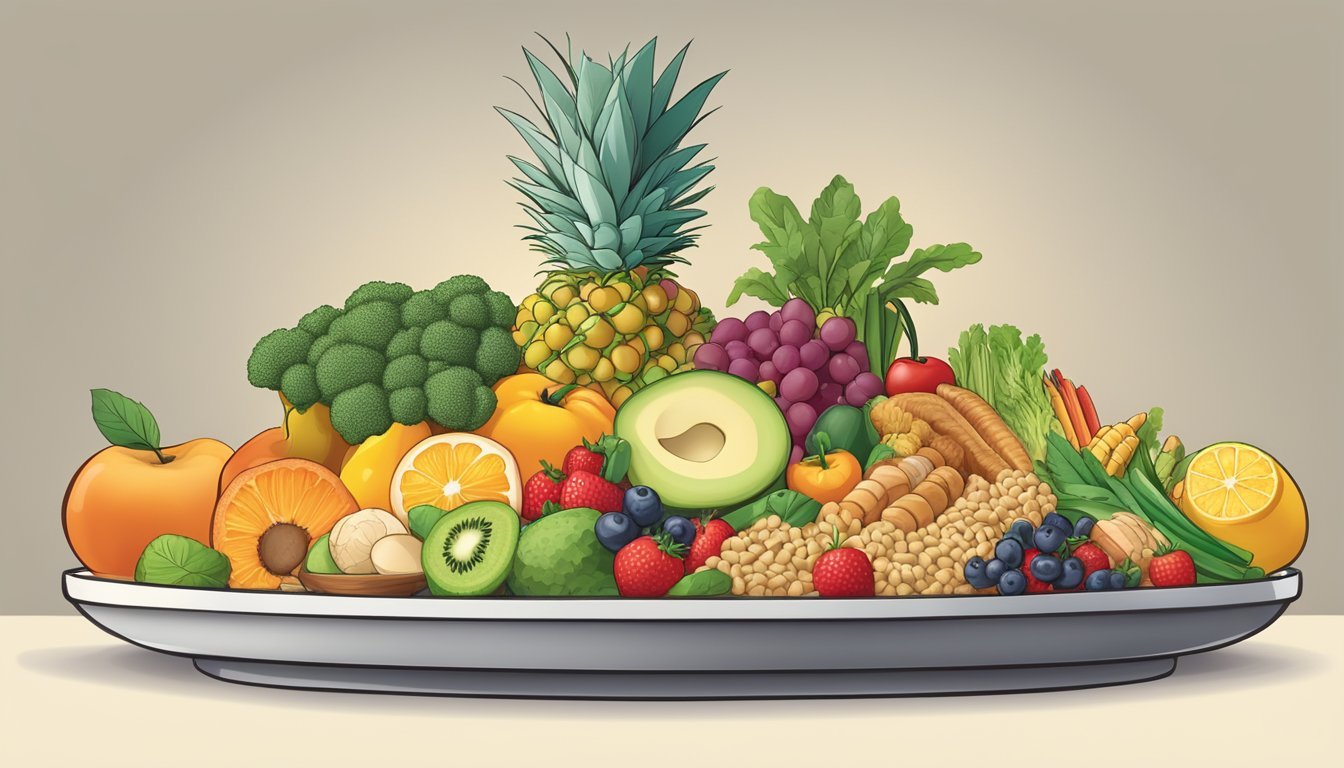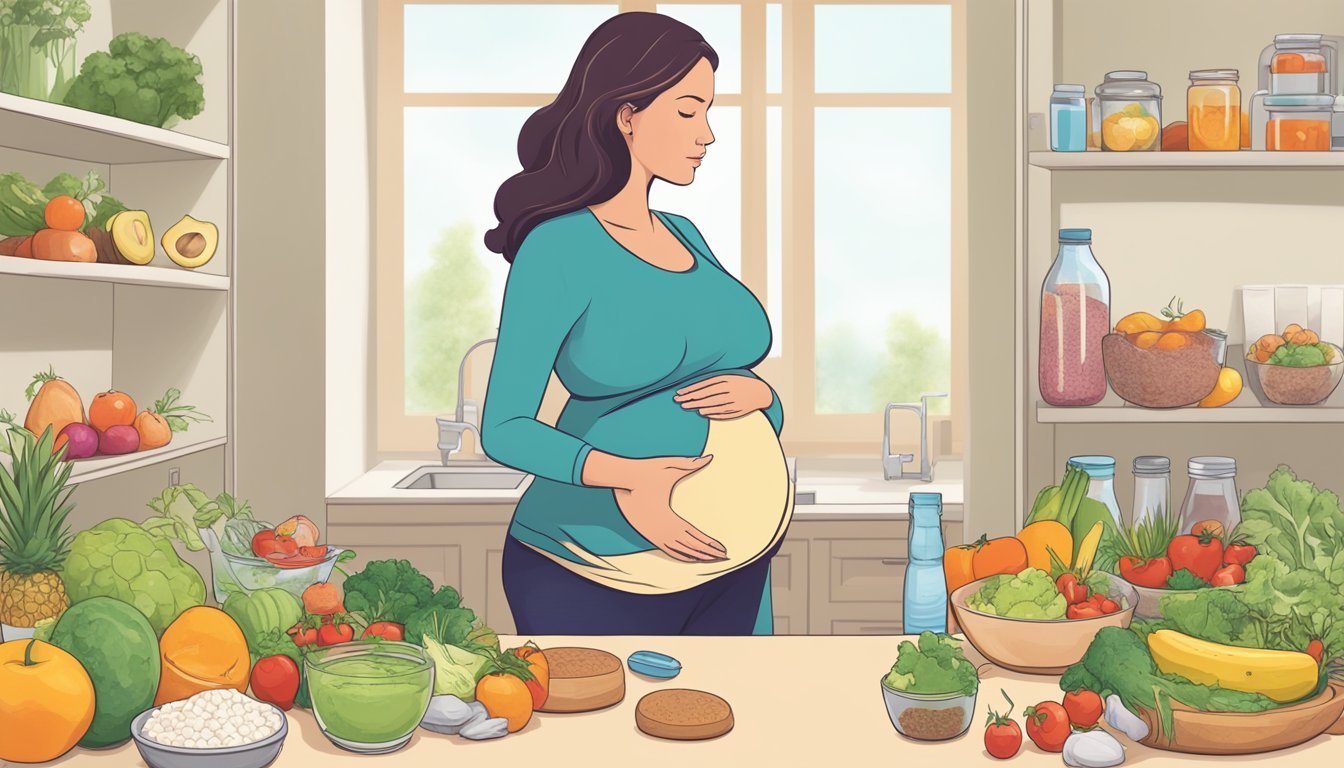Is It Safe to Follow the Body Reset Diet During Pregnancy?
Understanding Nutritional Impacts
The Body Reset diet is a dietary plan that emphasizes smoothies and frequent, small meals as a method for weight loss and metabolism boosting. It involves a structured schedule of meals and places a focus on blending a significant portion of the diet into liquid form. The intention behind the Body Reset diet is to provide a quick way to slim down while still supplying essential nutrients. However, the nutritional demands during pregnancy are unique, and any diet followed in this period must support not just the mother's health, but also the proper development of the baby.
During pregnancy, the body requires additional calories and nutrients to support the growth of the fetus. Key nutrients such as folic acid, iron, calcium, and protein are essential for the prevention of birth defects and the support of the baby's growth and brain development. A diet like the Body Reset may not meet these increased needs since it is designed for weight loss and may restrict certain food groups or overall calorie intake. It is important to consider whether the diet provides a balanced intake of nutrients without unnecessary restrictions.
Consulting a healthcare provider is crucial before starting any new diet during pregnancy. They can provide personalized advice based on an individual's health needs and the requirements of pregnancy. Safety for the mother and the developing baby is the top priority, and dietary choices should reflect the increased demand for certain nutrients during this critical time.
Understanding the Body Reset Diet
The Body Reset Diet is designed to be a swift overhaul of eating habits, focusing on blended, nutrient-rich foods to stimulate weight loss and improve dietary practices.
Diet Fundamentals
The diet centers on smoothies, which provide a convenient medium to consume a variety of fruits, vegetables, and fiber. These are integral for those who might otherwise find it challenging to meet their daily produce intake. The emphasis is on healthy eating through nutritionally dense ingredients, favoring whole foods over processed ones.
Fruits and Vegetables: Serve as the main components for smoothies, providing vitamins, minerals, and fiber.
Lean Protein: Included to support muscle maintenance and satiety.
Whole Grains: Occasionally integrated for their fiber and nutrient content.
Phases of the Body Reset Diet
The Body Reset Diet unfolds in three phases spanning 15 days.
Phase 1
Duration: 5 days
Foods: Smoothies only, no solid foods
Goal: Rapid kick-start for weight loss
Phase 2
Duration: Following 5 days
Foods: Introduction of some solid foods
Goal: Gradual transition to a more varied diet
Phase 3
Duration: Final 5 days
Foods: Broader variety of solid foods
Goal: Stabilize and maintain healthy eating habits
Dietary Concerns during Pregnancy
During pregnancy, a woman's body undergoes significant changes, necessitating a carefully chosen diet to support the development of the fetus while maintaining the mother's health. It's imperative to meet heightened nutritional needs and avoid foods that could pose risks.
Nutritional Requirements
Pregnant women require a balanced intake of nutrients to support fetal development and their own health. Key nutrients include:
Folic acid/Folate: Crucial for preventing neural tube defects, with a recommended intake of about 600 mcg daily. Sources include leafy greens, citrus fruits, and beans.
Iron: Important for supporting the increased blood volume and preventing anemia. Pregnant women should aim for 27 mg per day.
Calcium: Required for fetal bone development. A daily intake of 1000 mg is advised.
Vitamin D: Works with calcium for bone health and is vital for immune function. A daily intake of 600 IU is usually recommended.
Prenatal Vitamins: These supplements are designed to fill any nutritional gaps and should contain folic acid, iron, calcium, and vitamin D.
It is often suggested to consult a healthcare provider for advice on prenatal vitamins and tailored nutritional needs.
Foods to Avoid
Certain foods pose potential risks due to the presence of listeria, mercury, and other harmful elements, which can cause food poisoning or infection. Foods to avoid include:
Alcohol: Should be avoided entirely to prevent developmental issues.
Caffeine: Intake should be limited to less than 200 mg per day.
Raw or Undercooked Meats: May contain harmful bacteria, increasing the risk of foodborne illness.
Soft Cheeses: Some soft cheeses can harbor listeria; it's safer to eat hard cheeses.
Sushi: Raw fish may contain parasites or mercury; cooked sushi is a safer option.
Unpasteurized Products: Can lead to infection due to the possible presence of bacteria like listeria.
By avoiding these foods, pregnant women can reduce the risk of complications during pregnancy.
Health Risks and Benefits
When considering the Body Reset diet during pregnancy, it is crucial to evaluate its nutritional completeness against the requirements for a healthy pregnancy. The concerns about potential nutritional deficiencies and the importance of a balanced diet cannot be overstated for the development of the fetus and the well-being of the mother.
Potential Nutritional Gaps
The Body Reset diet often consists of low-calorie smoothies or shakes as meal replacements, which raises significant concerns during pregnancy.
Folic Acid: Essential for preventing neural tube defects, this nutrient might be in short supply in a restrictive diet like the Body Reset plan.
Iron: Pregnant women need more iron to support increased blood volume and prevent anemia. The focus on liquid meals may not provide enough of this crucial mineral.
Calcium: Critical for the growth of strong bones, the diet's potential lack of dairy products could lead to insufficient calcium intake.
Omega-3 Fatty Acids: These are vital for fetal brain growth but are not typically found in meal replacement shakes.
Adequate Calories: The diet may not supply enough calories, which are necessary for supporting the extra weight gain recommended during pregnancy.
Advantages of a Balanced Diet
Conversely, maintaining a diverse and balanced diet during pregnancy has documented advantages:
Comprehensive Nutrition: A balanced diet includes a variety of fruits, vegetables, whole grains, lean proteins, and healthy fats, which work together to support fetal development and maternal health.
Reduced Risks: Adequate nutrient intake has been linked to a lower risk of conditions such as miscarriage, preterm birth, and developmental issues in the baby.
Eating a varied diet ensures that pregnant women receive a spectrum of vital nutrients rather than the limited selection offered by a restrictive diet. It supports not only the growth requirements of the fetus but also the overall health and energy levels of the mother.
Specific Dietary Components
In the context of the Body Reset diet during pregnancy, the focus on specific dietary components is crucial for ensuring both maternal and fetal health. The diet's components need to be rich in essential nutrients, accommodating increased demands during pregnancy.
Protein Sources
Pregnant individuals should prioritize high-quality protein sources to support fetal growth and maternal health. It is advised to include:
Meat: Lean cuts to provide sufficient iron.
Fish: Especially those rich in omega-3 fatty acids, but avoiding types high in mercury.
Eggs: As a complete protein with all the essential amino acids.
Legumes: Such as beans and lentils, which also offer fiber.
Nuts and Seeds: Offering both protein and healthy fats.
Importance of Fruits and Vegetables
Fruits and vegetables are vital for supplying vitamins, minerals, and fiber. Key options include:
Broccoli: High in folate and fiber.
Legumes: Including beans and lentils; they are good sources of protein and iron.
Oranges: For vitamin C, which aids iron absorption.
Whole Grains and Fiber
Whole grains are important sources of fiber and nutrients:
Pasta and Bread: Opt for whole-grain varieties for added fiber and nutrients.
Rice and Cereals: Brown rice and fortified cereals can supply essential B vitamins.
Dairy and Alternatives
Dairy products provide calcium, protein, and other essential nutrients. Pregnant women should include:
Milk: A good source of vitamin D and calcium.
Cheese: Preferably pasteurized to ensure safety; offers calcium and protein.
Dairy alternatives should be fortified with calcium and vitamin D to meet nutritional requirements.
Adapting the Body Reset Diet for Pregnancy
When adapting the Body Reset Diet for a pregnancy, one must ensure that nutritional needs specific to expecting mothers are met while maintaining the essential features of the diet.
Customizing Nutrient Intake
For a pregnant individual, the nutrient intake must support both the mother's and the baby's health. The Body Reset Diet typically emphasizes smoothies and liquid nutritional intake, initially avoiding solid foods. However, during pregnancy, it's critical to incorporate a wider range of nutrients.
Folate: Pregnant women require around 600 mcg of folic acid daily to support the developing baby's brain and spinal cord health. Since smoothies allow for the inclusion of folate-rich leafy greens and citrus fruits, one can customize their smoothie ingredients to ensure adequate folate consumption.
Fiber: Adequate fiber is crucial to prevent constipation, a common issue during pregnancy. Smoothies with a base of high-fiber fruits, vegetables, or supplements like chia seeds can be beneficial.
Protein: The developing baby needs ample protein, especially in the latter half of the pregnancy. Including lean protein sources like fish or plant-based proteins can address this need.
Calcium and Vitamins: Additional essentials include calcium and vitamins, which can be obtained from fortified non-dairy milk used in smoothies or prenatal vitamins as advised by a healthcare provider.
Consulting with a Healthcare Provider
Before beginning or modifying any diet during pregnancy, a consultation with a healthcare provider is mandatory. They can offer personalized advice, adjusting the Body Reset Diet to the specific nutritional needs of the pregnancy.
Dietary Adjustments: A doctor can recommend the necessary adjustments, such as adding solid foods or specific types of nutrients that are crucial during pregnancy.
Supplement Usage: They can also guide about prenatal vitamins and other supplements to ensure the diet does not lead to nutritional gaps.
Monitoring Health: Regular check-ups will help monitor the effects of the dietary plan on the health of both the mother and the developing fetus, making sure the diet contributes to a healthy pregnancy.
Alternatives to Consider
When pregnant, it’s essential to prioritize both the mother's and the baby's nutritional needs, which might not be met by a restrictive diet like the Body Reset. Instead of focusing on such diets, expectant mothers may consider well-balanced vegetarian or vegan options and incorporating seafood safely.
Vegetarian and Vegan Options
Pregnant women choosing vegetarian or vegan diets should ensure they receive adequate protein, calcium, and iron which are crucial for the baby's development. They can include high-protein plant foods like lentils, chickpeas, and tofu. Additionally, it’s important to consume enough iodine, which supports fetal brain development. Iodine-rich vegetarian options include dairy products and iodized salt. For those who consume dairy, choices like feta and brie should be made with caution due to the potential risk of listeria; it's critical to ensure these cheeses are made from pasteurized milk.
Protein Sources: lentils, chickpeas, tofu, quinoa
Calcium Sources: fortified plant milk, yogurt, leafy greens
Iron Sources: legumes, iron-fortified cereals, pumpkin seeds
Incorporating Seafood Safely
Incorporating seafood into a pregnancy diet can be very beneficial owing to the high levels of omega-3 fatty acids, critical for brain development. Fishes like salmon and sardines are excellent choices due to their lower mercury content but high nutritional value. However, pregnant women should avoid high-mercury seafood like shark, swordfish, mackerel, and marlin. Instead, safe consumption should focus on 2-3 servings per week of low-mercury fish.
Recommended Seafood:
Seafood to Avoid:
Shark
Swordfish
King Mackerel
Marlin
For the best outcome, pregnant individuals should consult with a healthcare provider to tailor a nutrition plan that suits their specific needs.
Conclusion
In the context of pregnancy, healthy eating is crucial for both the mother and the developing fetus. The Body Reset Diet, primarily characterized by a liquid regimen with limited calories, typically does not align with the nutritional requirements for a pregnant individual.
Obstetric guidelines emphasize the importance of a balanced diet that includes a variety of whole foods. In contrast, diets like the Body Reset plan may not provide sufficient nutrients.
Health.gov and the Mayo Clinic both offer resources that advocate for the consumption of whole grains, lean proteins, fruits, vegetables, and healthy fats during pregnancy. These resources also suggest avoiding diets that severely restrict caloric intake or key food groups.
Considering these factors, it is generally recommended that pregnant women avoid the Body Reset Diet. Instead, they should focus on nutrient-dense foods and possibly consult a healthcare provider or a dietitian. They may also use tools such as a pregnancy due date calculator to track the progress of the pregnancy and receive customized dietary advice based on the pregnancy stage.
Pregnant individuals should approach their dietary choices with care, prioritizing plans that support fetal development and their own health, rather than following restrictive diets that could undermine these goals.









